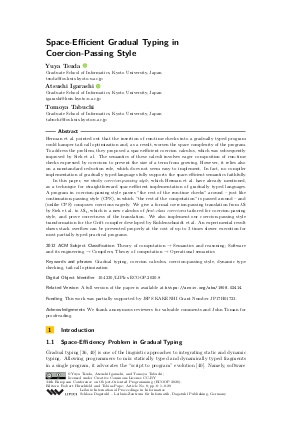LIPIcs.ECOOP.2020.8.pdf
- Filesize: 0.69 MB
- 29 pages

 Creative Commons Attribution 3.0 Unported license
Creative Commons Attribution 3.0 Unported license









Feedback for Dagstuhl Publishing